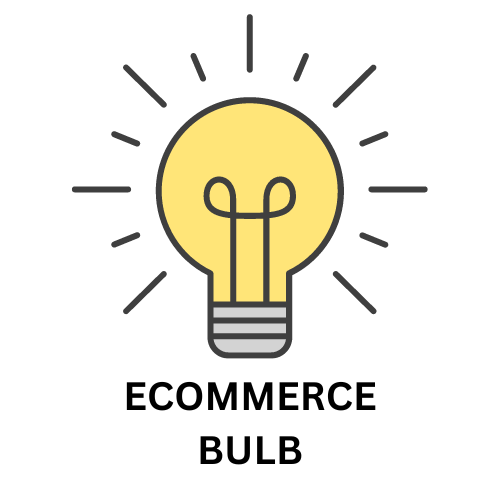In this blog post we are going to discuss Sellfy for Creators – How can Digital and Physical Content creators promote their work on Sellfy eCommerce Platform.
Sellfy for Creators:
Sellfy is a great platform for content creators. It’s designed specifically for selling digital products, making it a popular choice for authors, musicians, software developers, and more.
Here’s why Sellfy is a good option for content creators:
- Easy to use: The platform is user-friendly, even for those without technical expertise.
- Focus on digital products: Sellfy is optimized for selling digital content like ebooks, music, software, and online courses.
- Competitive pricing: Offers affordable plans with no transaction fees.
- Built-in marketing tools: Includes features like email marketing and social media integration.
- Customer support: Provides reliable assistance to help you with any issues.
If you’re a content creator looking to sell your digital products online, Sellfy is definitely worth considering.
Further Readings about Sellfy itself: Top 6 Sellfy Reviews

eCommerce for Creators:

E-commerce platforms offer numerous benefits for creators looking to sell their digital or physical products:
Accessibility:
- Global reach: Sell your products to customers worldwide.
- 24/7 availability: Your store is open for business around the clock.
Convenience:
- Easy setup: Create an online store with minimal technical knowledge.
- Centralized management: Manage orders, payments, and customer data from a single platform.
Cost-effectiveness:
- Lower overhead: No need for physical storefronts or inventory management.
- Scalability: Easily expand your business without significant upfront costs.
Data-driven insights:
- Analytics: Track sales, customer behavior, and other key metrics.
- Optimization: Use data to improve your product offerings and marketing strategies.
Marketing tools:
- Built-in features: Many platforms offer email marketing, social media integration, and other marketing tools.
- Customization: Tailor your marketing efforts to your target audience.
Customer support:
- Built-in support: Most platforms provide customer support to help you with any issues.
- Community: Connect with other creators and learn from their experiences.
By leveraging these benefits, e-commerce platforms can empower creators to monetize their work and reach a wider audience.

How Can I Create my own eCommerce?

Creating Your Own eCommerce Store: A Step-by-Step Guide
1. Choose a Platform:
- E-commerce platforms: Shopify, WooCommerce, Magento, BigCommerce, etc.
- Website builders: Wix, Squarespace, Weebly.
- Custom development: For complete control, consider hiring a developer.
2. Select a Domain Name:
- Choose a memorable and relevant domain name for your online store.
3. Set Up Hosting:
- If using a platform like Shopify or Wix, hosting is often included.
- If using a custom website, you’ll need to choose a hosting provider.
4. Design Your Store:
- Choose a template: Select a design that aligns with your brand.
- Customize: Adjust colors, fonts, and layout.
5. Add Products:
- Product information: Include clear descriptions, high-quality images, and pricing.
- Inventory management: Set up inventory tracking if selling physical products.
6. Set Up Payments:
- Integrate payment gateways: Connect to platforms like PayPal, Stripe, or Authorize.Net.
7. Configure Shipping:
- Shipping rates: Set shipping costs based on location and weight.
- Shipping options: Offer various shipping methods (e.g., standard, express).
8. Optimize for SEO:
- Keywords: Use relevant keywords in product titles, descriptions, and meta tags.
- On-page optimization: Improve your website’s structure and content.
9. Marketing and Promotion:
- Social media: Create profiles and share your products.
- Email marketing: Build an email list and send promotional campaigns.
- Paid advertising: Consider Google Ads or social media ads.
10. Analyze and Optimize:
- Track metrics: Monitor sales, traffic, and customer behavior.
- Make improvements: Use data to refine your strategy.
Remember: Building an e-commerce store takes time and effort. Be patient, experiment with different strategies, and continuously optimize your store based on data.

eCommerce for Content Creators:

Yes, eCommerce for content creators is not only good but also increasingly essential in today’s digital landscape. It provides a direct channel for creators to monetize their work, engage with their audience, and build a sustainable income stream. Here’s an in-depth look at why eCommerce is beneficial for content creators, the advantages it offers, potential challenges, and some of the best platforms to consider.
Why eCommerce is Beneficial for Content Creators
- Direct Monetization: Selling your content directly to your audience allows you to retain a larger share of the profits compared to traditional methods like advertising or third-party platforms.
- Control Over Branding and Customer Experience: With your own eCommerce store, you have complete control over how your brand is presented and how customers interact with your products.
- Diversified Income Streams: eCommerce enables you to sell a variety of products and services, such as digital downloads, merchandise, subscriptions, courses, and more.
- Enhanced Engagement: Direct sales channels foster a closer relationship with your audience, allowing for personalized marketing and better customer feedback.
- Scalability: As your audience grows, your eCommerce platform can scale with you, accommodating increasing sales and expanding product lines.
Advantages of eCommerce for Content Creators
- Higher Profit Margins: By eliminating intermediaries, creators can keep a larger portion of each sale.
- Data Ownership: Access to customer data allows for better understanding of your audience and more effective marketing strategies.
- Global Reach: eCommerce platforms enable you to reach a worldwide audience without geographical limitations.
- Flexibility: You can experiment with different product types, pricing strategies, and marketing campaigns to find what works best for your audience.
Potential Challenges
- Initial Setup and Maintenance: Setting up an eCommerce store requires time and effort, including website design, product listings, and ongoing maintenance.
- Marketing and Traffic Generation: Driving traffic to your store can be challenging, especially in competitive niches. Effective marketing strategies are essential.
- Technical Issues: Managing website performance, security, and integrations can require technical expertise or additional resources.
- Customer Service: Handling inquiries, refunds, and other customer service aspects can be time-consuming.
Top eCommerce Platforms for Content Creators
1. Sellfy
Sellfy is tailored specifically for creators looking to sell digital products, physical goods, subscriptions, and print-on-demand items.
Pros:
- User-Friendly Interface: Easy to set up without technical expertise.
- Integrated Features: Built-in email marketing, discount codes, and payment processing via Stripe and PayPal.
- No Transaction Fees: Keeps more of your earnings.
- Print-on-Demand: Offers inbuilt POD options for custom merchandise.
Cons:
- Limited Customization: Fewer themes and design options compared to platforms like Shopify.
- Basic Analytics: Might require integration with tools like Google Analytics for deeper insights.
- Mandatory Branding: Lower-tier plans include “Powered by Sellfy” branding on your store.
Best For: Creators seeking a straightforward, all-in-one platform to sell a mix of digital and physical products without worrying about transaction fees.
2. Shopify
Shopify is a robust eCommerce platform suitable for a wide range of businesses, including content creators.
Pros:
- Highly Customizable: Extensive themes and apps to tailor your store.
- Scalable: Suitable for both small and large businesses.
- Comprehensive Features: Includes blogging, SEO tools, and a vast app marketplace.
Cons:
- Cost: Can be more expensive, especially with added apps and premium themes.
- Learning Curve: More complex features may require time to learn.
Best For: Creators who anticipate rapid growth and need a highly customizable and scalable platform.
3. Gumroad
Gumroad is popular among creators for selling digital products and memberships.
Pros:
- Simplicity: Easy to set up and use.
- Flexible Payment Options: Supports one-time purchases, subscriptions, and pay-what-you-want pricing.
- Integrated Marketing Tools: Offers email marketing and discount codes.
Cons:
- Limited Customization: Fewer design options compared to other platforms.
- Transaction Fees: Higher fees on lower-tier plans.
Best For: Creators focusing primarily on digital products who prefer a simple and quick setup.
4. Patreon
Patreon is designed for creators who want to offer ongoing memberships or subscriptions to their audience.
Pros:
- Community Building: Encourages a strong sense of community with recurring support.
- Flexible Membership Tiers: Offer various levels of access and rewards.
- Integrated Tools: Includes messaging and content distribution features.
Cons:
- Limited Storefront Features: Not ideal for selling standalone products.
- Fees: Charges a percentage of your earnings on each tier.
Best For: Creators seeking to build a membership-based income model with recurring support from fans.
5. WooCommerce (WordPress)
WooCommerce is a powerful eCommerce plugin for WordPress, offering extensive customization and control.
Pros:
- Highly Customizable: Thousands of plugins and themes available.
- Cost-Effective: The core plugin is free, with paid extensions as needed.
- SEO-Friendly: Leverages WordPress’s strong SEO capabilities.
Cons:
- Requires WordPress: Needs a WordPress site, which may involve a steeper learning curve.
- Maintenance: Requires regular updates and security management.
Best For: Creators who are comfortable with WordPress and want full control over their eCommerce store.
Key Factors to Consider When Choosing an eCommerce Platform
- Type of Products: Determine whether you’ll be selling digital products, physical goods, subscriptions, or a combination.
- Customization Needs: Assess how much control you want over the design and functionality of your store.
- Budget: Consider the costs of the platform, including monthly fees, transaction fees, and any additional costs for apps or themes.
- Scalability: Choose a platform that can grow with your business and handle increased traffic and sales.
- Marketing and SEO Tools: Ensure the platform offers robust marketing features to help you promote your products effectively.
- Ease of Use: Depending on your technical expertise, you might prefer a more user-friendly platform over one that requires technical skills.
Conclusion
eCommerce is highly beneficial for content creators, offering a direct and flexible way to monetize your work, engage with your audience, and build a sustainable business. Platforms like Sellfy, Shopify, Gumroad, Patreon, and WooCommerce each offer unique features tailored to different needs and preferences.
Choosing the right platform depends on factors such as the type of products you sell, your customization needs, budget, and how you plan to scale your business. Evaluate each option based on these criteria to find the best fit for your specific situation.
Pro Tip: Start with a platform that aligns closely with your current needs and offers room for growth. As your business evolves, you can migrate to more advanced platforms or integrate additional tools to enhance your eCommerce capabilities.

What is the Best Website for eCommerce?

The “best” e-commerce website platform depends on your specific needs, budget, and technical expertise. There are many excellent options available, each with its own strengths and weaknesses.
Here are some of the most popular e-commerce platforms:
- Shopify: Known for its user-friendliness and extensive app ecosystem.
- Sellfy: Very popular amongst Digital Content Creators.
- WooCommerce: A popular plugin for WordPress, offering high customization.
- Magento: A powerful platform suitable for large businesses and complex online stores.
- BigCommerce: Offers a variety of features and pricing plans.
- Ecwid: A versatile platform that can be embedded into existing websites.
Factors to consider when choosing a platform:
- Ease of use: How easy is it to set up and manage your store?
- Features: Does the platform offer the features you need (e.g., payment gateways, shipping options, marketing tools)?
- Cost: What are the subscription fees and transaction costs?
- Scalability: Can the platform handle your business growth?
- Customization: How much control do you have over your store’s design and functionality?
It’s recommended to research and compare different platforms before making a decision. Many platforms offer free trials or demos to help you evaluate their suitability.



Leave a Reply